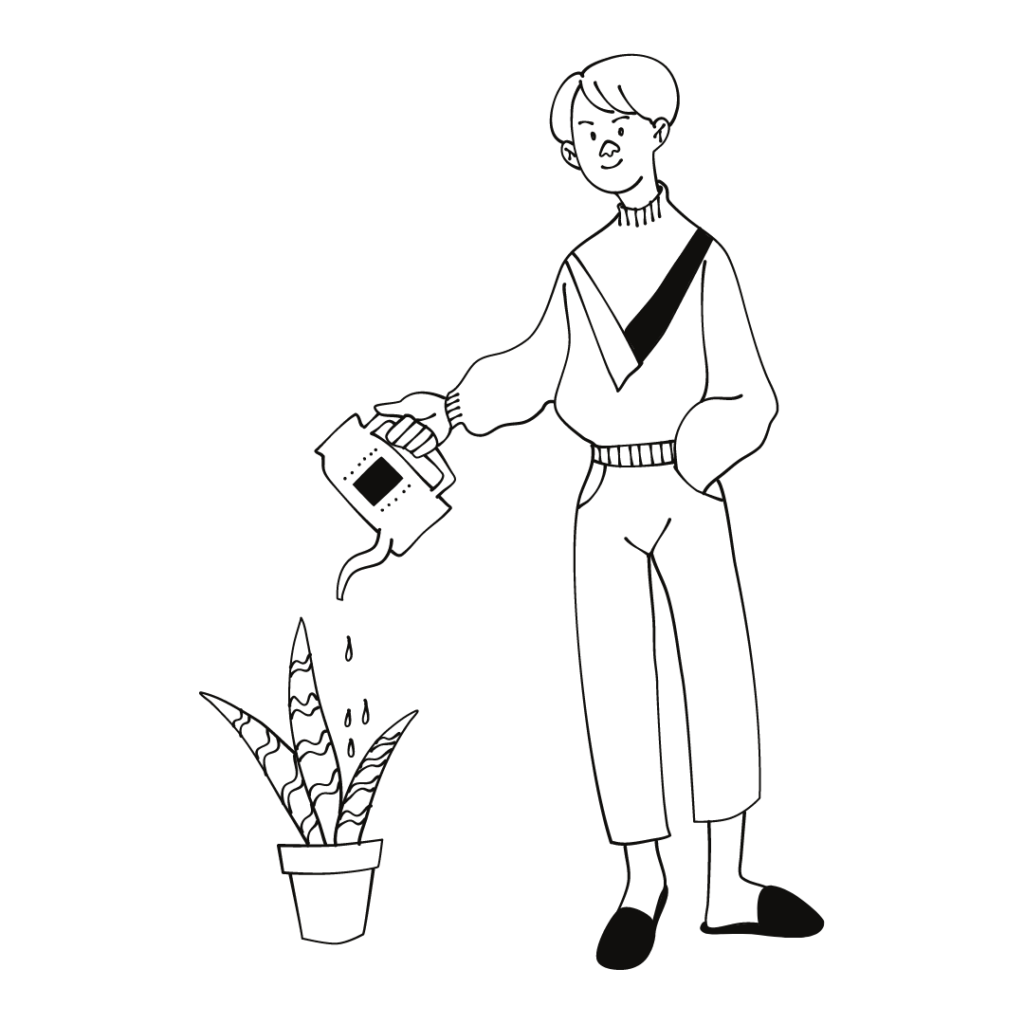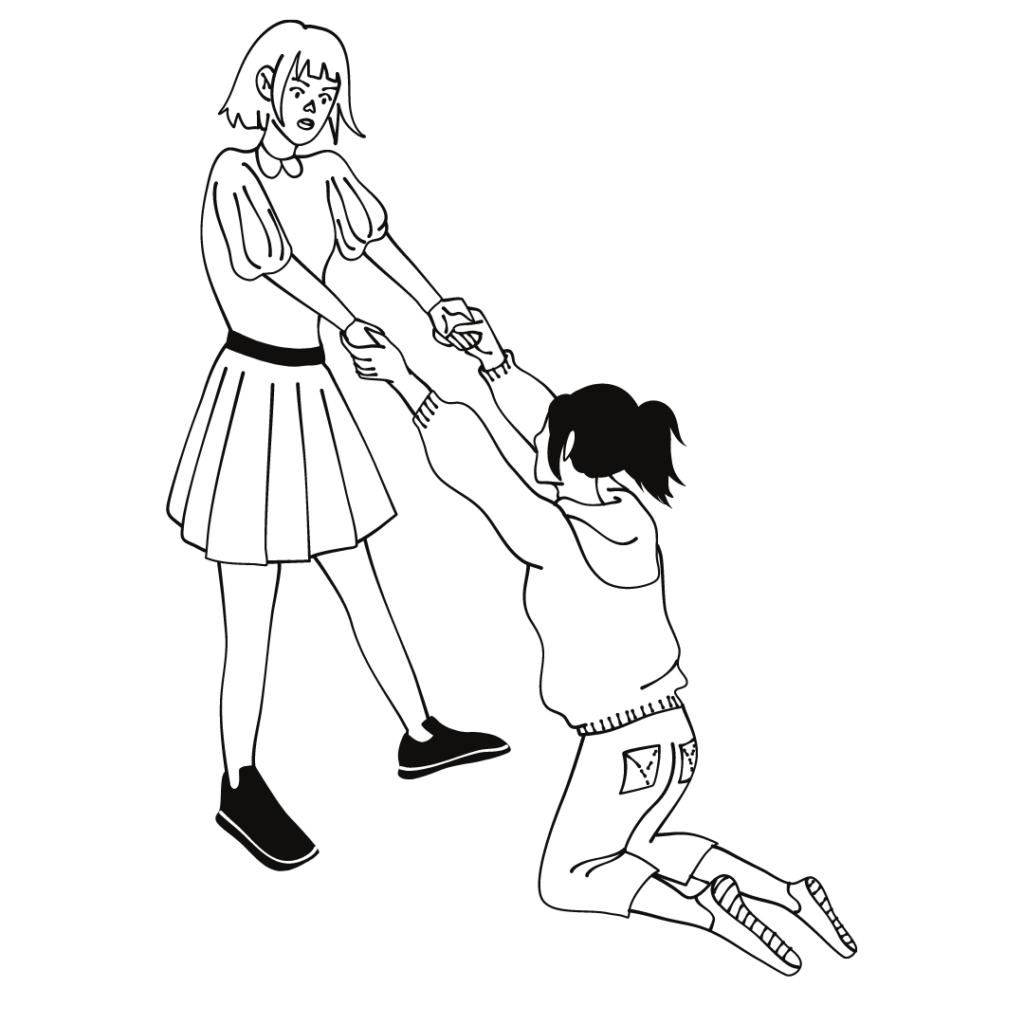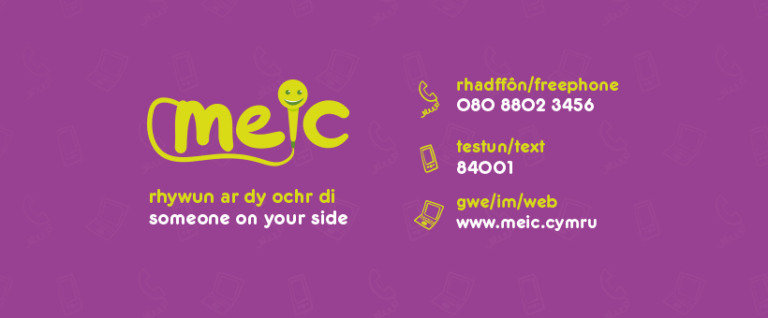As part of our #YouDeserve campaign we spoke to an adviser from the Meic helpline. We asked them a few questions to find out what advice they would give a young person who was worried about how to approach a difficult conversation with a friend. Here’s what they had to say.
This article was written as part of our #YouDeserve: Healthy Relationships Campaign.
To find out more about the campaign click here.
If I’m worried about a friend should I try to talk to them or leave it alone?
If you’re worried about a friend for any reason, and think you might be able to help, it’s a good idea to talk to them. Sharing concerns about someone directly to them can be tricky, so some good advice would be to think about how to approach it before you go ahead and do it.
When is the best time and place to have a difficult conversation?
You should think about when, where, and how to have this conversation. It’s always better to have personal and potentially painful conversations in a quiet space, ideally away from other people. This will help them feel as comfortable as possible and protect their privacy and dignity.
How you start the conversation and the approach you take will help your friend feel supported. If you’re in a situation where you can plan ahead, here are some pointers:
- Get permission from your friend to talk about the concern(s) you have for them. This will help them feel in control and that they aren’t being pushed into a sensitive or difficult conversation
- If your friend is open to the idea of talking, ask them when and where would be good for them. You could suggest going for a walk – doing something that offers a distraction can make a difficult conversation less intense

What’s the best way to start a difficult conversation with a friend?
Take some time to think about how you would like a friend to start a conversation if they were worried about you.
Begin by acknowledging that the conversation might be difficult for them and offer reassurance that you will respect their wishes if they don’t want to talk about it, or if they want to end the conversation at any point.
Let them know that you’re there to support them, not to judge them.
If your friend doesn’t want to share their concerns with you then let them know that you’ll be there for them if they change their mind.
How can I be supportive?
You can be supportive in the following ways:
- Express difficult points in a sensitive and respectful way
- Reassure your friend that you’re sharing your concerns because they matter to you
- Listen to your friend
- Keep to what has caused you to be worried rather than making any critical or judgemental statements
- Ask your friend how they feel about the situation and what support, if any, they would like
- Give your friend space and time to reflect if this is what they need

What advice should I give a friend who is struggling?
If your friend is struggling, here’s some things you can do or say to advise them and help them work through their difficulties:
- Praise them for sharing how they’re feeling, acknowledge how difficult that can be
- Say it’s really positive that they’ve taken the first step in getting help to stop, start or change something that is causing them difficulty
- Ask your friend questions about what they want to happen and what they think might help to achieve this
- If your friend is stuck for ideas, you could ask them what advice they would give to a friend who was in this situation
- You can offer some ideas of your own if your friend is struggling with how to resolve problems – these are best expressed as “have you thought about/you might want to” rather than “you should” as that gives space for them to decide which options suits them best
- Offer to find information about people/organisations that they can turn to if they need further support, such as helplines and counselling services
What if they tell me something and I don’t know how to react or how to help them?
If your friend tells you something and you’re not sure how to react or what to advise, be honest about that and offer to try to work it out together, or identify someone else that can help.
At the Meic helpline, we get calls from children and young people who are asking for advice on how to help a friend – you could also contact Meic for advice on your friend’s specific situation. Even if you don’t have any ideas on how to help them, just offering to be there for them and help them explore what options they have will be an enormous help.

What happens if it goes wrong?
If you’re worried about a friend’s immediate safety, try to find a quiet space where you can express your concerns, like going outside or popping to the loo, for example. If you’re friend isn’t being responsive to your concerns, and you think they might be at risk of serious harm, try to find a member of staff at the location you’re at, or if you feel the risk is high call 999 to ask for assistance.
The same would apply if you’re not with your friend but have reason to believe that they’re in immediate danger. Don’t hesitate to call 999. Alternatively, if you know that they live with other people and it’s safe to do so, call them to alert them to any danger.
Many people are uncomfortable about doing this without the consent of the person at risk, but if it helps to keep them safe then it’s worth doing. They’re likely to be thankful to you for taking this action in the long term, even if it does affect your friendship. Most people come to understand the reasons for taking drastic action and friendships usually recover.
Contact Meic
If you need to talk to Meic, about anything that’s worrying you. You can call, text or chat online between 8am and midnight every single day.





